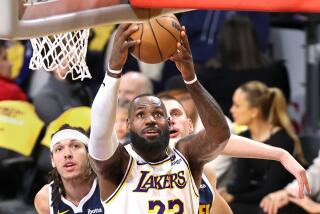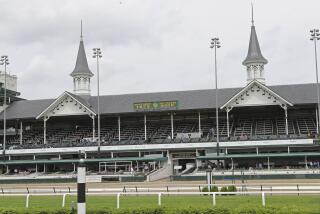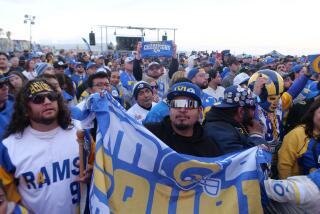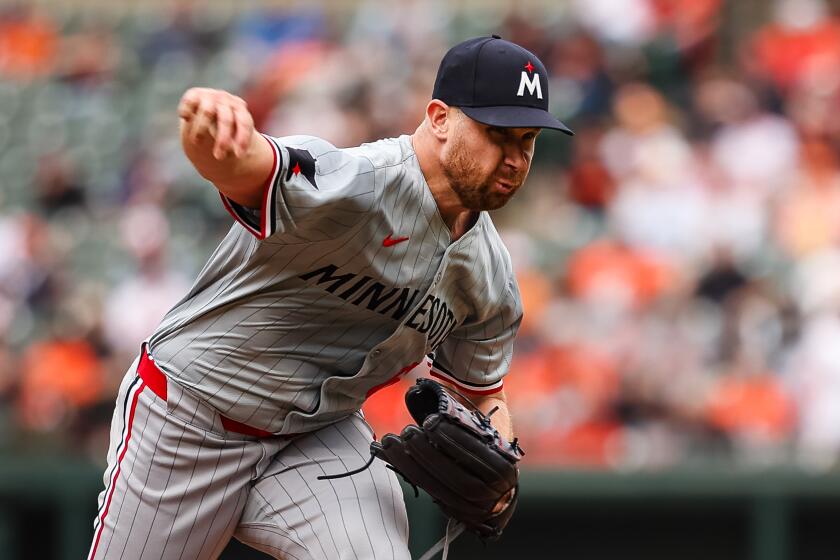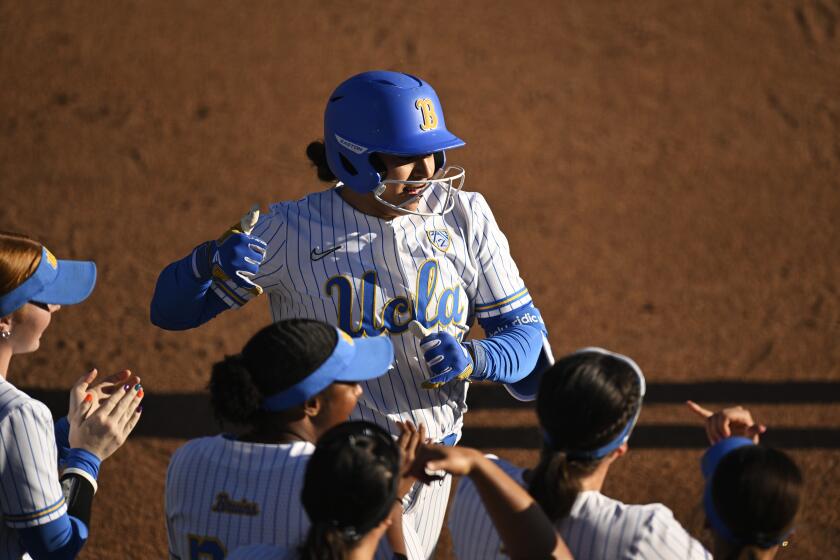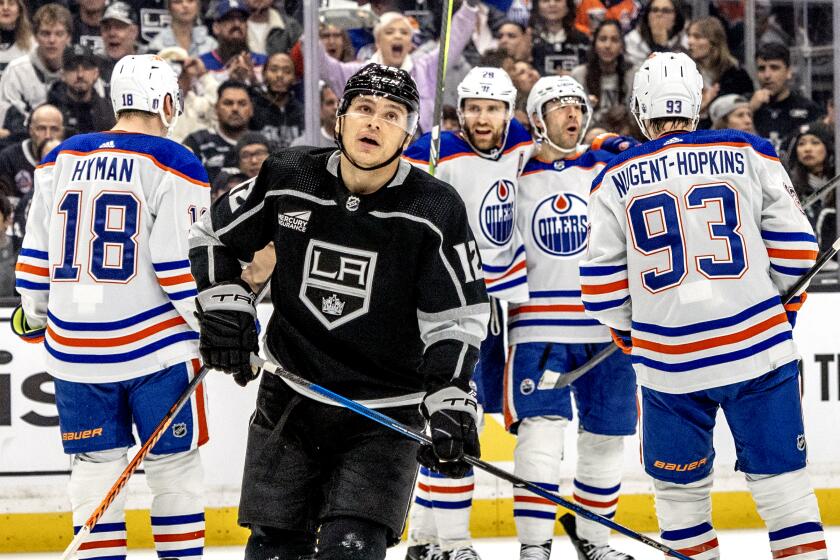In sports and politics, the winners don’t let up
They played a major league All-Star game in San Francisco on Tuesday, and that’s a peg for telling a little story I’ve been sitting on for 46 years.
It involves the late, great Warren Spahn, winningest left-handed pitcher of all time. “Great” was practically his first name, a Hall of Famer who hurled 21 years in the National League, with an early timeout for combat duty in World War II.
The story is that Spahn was a jerk, at least on one particular day. It’s what prompted me to become a political writer and quickly learn that there are many similarities between sports and politics.
But let’s back up to 1961 and the first All-Star game ever held in the bay city.
I was a sportswriter for United Press International in San Francisco, a lowly No. 3 on the depth chart, but a terrific job for a recent college grad, sports nut and baseball worshiper.
For me, the All-Star game grew goose bumps. With my nifty lapel pin credential -- a souvenir keeper that depicted the Golden Gate Bridge, a big star and a bat -- I could stand behind the batting cage during pregame warmups and watch the likes of Mickey Mantle, Roger Maris, Willie Mays, Roberto Clemente and Hank Aaron swat balls all over new Candlestick Park.
My assignment was to write a post-game story filled with good quotes from the locker room.
Aaron, Mays and Clemente were the 10th-inning heroes in a 5-4 National League win. But Spahn, from the Milwaukee Braves, had been the Nationals’ starting pitcher, going three innings without giving up a run, a hit or walk. So I also wanted to hear his wisdom.
I didn’t have to chase him down. The 6-foot lefty walked up to me, as I stood with pen and notepad, and stared down at my credential. “That’s cool,” he said. “I can give that to some.... “ He used an unprintable vulgarity for a female.
Then the great one yanked the souvenir off my lapel and put it in his pocket. I was too stunned and rushed for a story -- and out of my league -- to object.
But I soon concluded what I already had begun to realize: There were a lot of jerks in pro sports, as compared to college.
I also was a political junkie. There were jerks in politics too, I figured. But at least the politicians did things that were important. Whether the San Francisco Giants won or lost would have no real affect on my life. But what politicians did would determine the taxes I paid and schooling for my kids.
I requested a transfer to Sacramento and it was granted after the baseball season. This was an exciting time in the Capitol: Gov. Pat Brown was rebuilding the state. Jesse “Big Daddy” Unruh was about to be elected Assembly speaker en route to becoming a legend.
And I soon began to witness the similarities between sports and politics.
The first was a dominating competitive spirit. Neither big league sports nor partisan politics is suited for the shy or queasy.
“If you want to win and somebody’s standing in your way, you’ve got to run over them -- whether they’re at second base trying to turn a double play, or standing next to you on the podium running for president,” says political consultant Ray McNally.
“The ones who really make it, they’ll smile at you and then cut your throat ear to ear. You’ve got to have a killer instinct.”
The single-minded obsession to win is called “heart” in sports. In politics, it’s “the fire in the belly.” In one, it’s the discipline to put in long practice hours striving for perfection. In the other, it’s hitting up donors for money, walking precincts on weekends and attending countless Lions Club meetings.
And the victor isn’t always the one with the most brawn in sports or brains in politics. It’s often the best strategist, says Assembly Speaker Fabian Nunez (D-Los Angeles), a former amateur boxer and weekend soccer player.
A sizable ego also is a must, he says. “Otherwise, [the state Capitol] won’t be a fit for you.”
In sports and politics, Nunez continues, “You’re like the sun and everything circulates around you. There is a sense of gratification when you’re good at what you do. Even though a team is involved, you take with you the things that you contribute to the team’s success. You live off those memories.”
Consultant Dan Schnur, however, thinks “the biggest similarity between politics and sports is the importance of teamwork. The best politicians talk about being part of a cause greater than themselves. That’s what coaches tell you. It’s not about putting yourself ahead of the team.”
In team sports, it’s the squad; in partisan politics, the caucus. In either case, if players don’t stay in line, they’re benched or shipped out -- traded or stripped of power.
Consultant Bill Carrick, longtime chief strategist for Democratic Sen. Dianne Feinstein of California, says female politicians “are no less competitive” than males, “but have better judgment” when on the attack. “They have a better sense of balance about what’s in bounds and out of bounds.”
Ah, yes, the merging of sports lingo with politics. “Journalists and political operatives ought to be sent through a program to teach them not to inject a sports metaphor into every political activity,” Carrick says. “Everybody does it: ‘He hit a homerun.’ ‘That was a touchdown.’ ‘It’s a slam dunk.’”
Naw, some of us couldn’t write.
Athletes and politicians begin playing their games for the same basic reason: They excel and enjoy winning -- either on the playground or running for class president. That engenders seductive acclaim and stature, plus ultimately money for athletes and power for politicians.
As for jerks, I honestly haven’t found that many in politics. Whether you agree or disagree with them, most politicians are interesting and civil.
I’ve never heard anything from a politician quite as crude as a certain All-Star’s comment. Spahn never did give me a good quote, except the one I saved for 46 years.
--
More to Read
Get our high school sports newsletter
Prep Rally is devoted to the SoCal high school sports experience, bringing you scores, stories and a behind-the-scenes look at what makes prep sports so popular.
You may occasionally receive promotional content from the Los Angeles Times.
